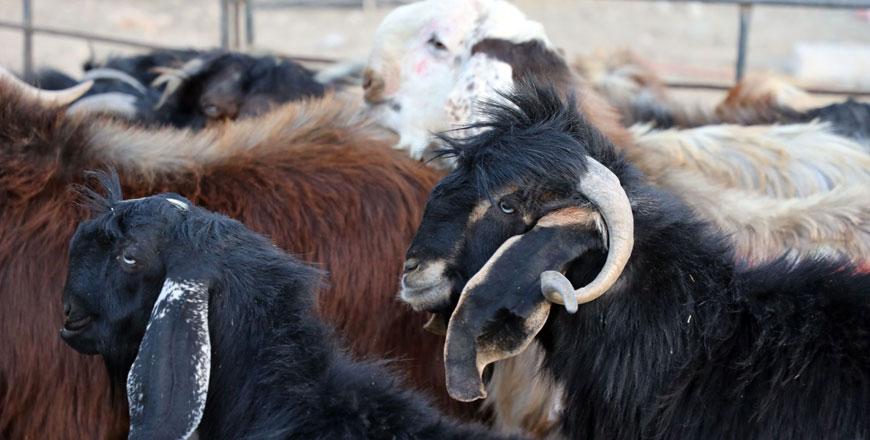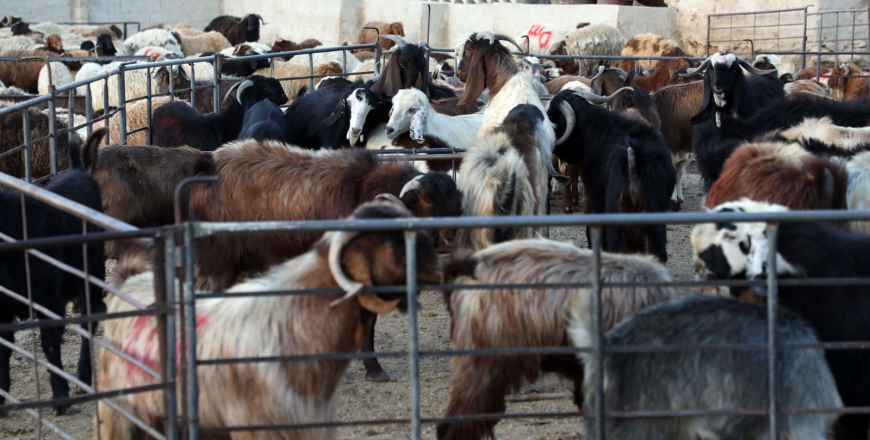You are here
Livestock demand dropped 50% during Eid Al Adha — stakeholder
By Rayya Al Muheisen - Jul 13,2022 - Last updated at Jul 13,2022

Sacrificial animals are seen at a livestock market in Amman’s Shafa Badran neighbourhood in this recent photo (Photo by Osama Aqarbeh)
AMMAN — Livestock sales witnessed a 50 per cent drop during this year’s Eid Al Adha compared with last year, which is the most favourable season for farmers, according to Za’al Al Kawaleet, president of Livestock Owners and Breeders Association.
Kawaleet told The Jordan Times that 250,000 sacrificial animals were sold during this eid, compared with approximately 550,000 sold last year.
He attributed the “significant drop” to weak consumer purchasing power and the country’s overall economic situation.
“Despite the market’s wide range of offerings from weights and country of origin, the demand for sacrificial animals this season was weak,” Kawaleet said.
He stated that although the prices of sacrificial animals were higher in the previous years, the demand was still better.
Kawaleet indicated that fodder prices have increased, in addition to shipping fees for imported livestock.
“Livestock farmers are not doing very well,” he said, adding that the prices of red meat are expected to drop in the coming period.
Abu Ali, a 66-year-old Jordanian, said he couldn’t afford a sacrificial animal this year. “Sacrifice is recommended for people of sufficient means,” said Abu Ali.
He added that with the ongoing price increases and the growing cost of living, he doesn’t consider himself “of sufficient means”.
Meanwhile, Ibrahim Al Bdour, a livestock farmer and breeder in the Tafileh Governorate, roughly 180 kilometres south of Amman, said that sales were not as desired.
“Imported cattle are cheaper than local ones. According to the merchants I know, the imported ones sold better,” he added.
Related Articles
AMMAN — Livestock owners and breeders are growing concerned over potential ramifications that the ongoing conflict in Sudan may have on the
AMMAN — Representatives from a variety of economic sectors have noted that demand in their respective industries is either stagnant or “shy”
AMMAN — Local livestock farmers say they are bracing for lower profits and higher costs as Eid Al Adha begins. The holiday, which

















